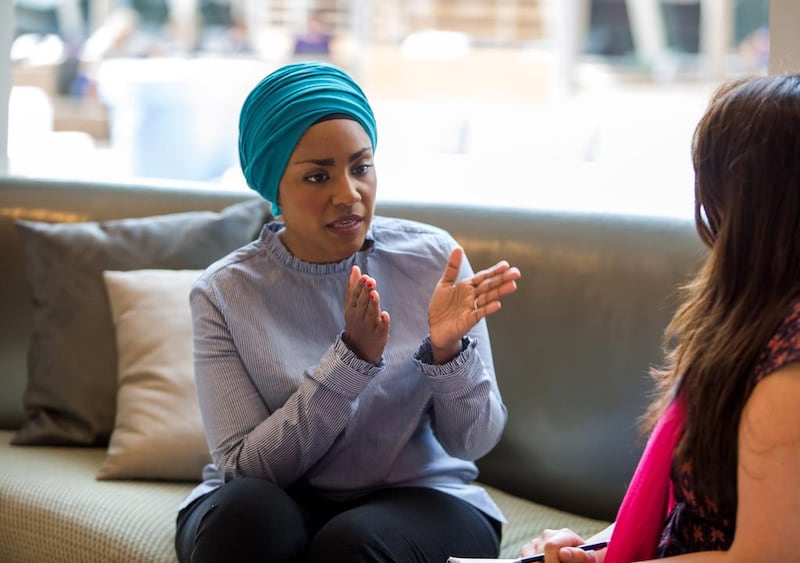Nadiya Hussain, the British Muslim who won the The Great British Bake Off in 2015 and has since become an author, TV chef and one of the most high-profile members of her religion in the country, has told of the toll that her rapid elevation in status has taken on her and her family.
In an interview with The Times newspaper, she said: “It’s really scary to be a Muslim right now. Sometimes my kids will say ‘Mummy, do people not like Muslims?'"
The 33-year-old, who is releasing a new cookbook, her fifth, also spoke about how in her very visible role she attracts criticism from all parts of society - from racist trolls on Twitter through to members of her own Bangladeshi community in Britain.
“I have to justify my existence all the time,” she said of the abuse that she receives on social media. “I’m a little bit of everything. I’m brown. I’m Muslim. I cover my hair. I claim to be British at the same time, so I get abuse from every angle. I’m never a good enough Muslim. I’m not a good enough Brit. I’m not a good enough Bangladeshi. I think three years ago, I would have just sat there and taken it, but now, if it’s worth a response, I’ll say something.”
This year she was particularly vocal on Twitter, calling the British prime Minister Theresa May a “monster” over her decision to bomb Syria, although she later deleted the tweet. Ms Hussain admitted to her intention to “probably” vote for the opposition Labour Party, saying its outspoken leader Jeremy Corbyn is “endearing”.
_______________
Read more:
_______________
In recent weeks, she has used her Twitter feed to explain the intricacies of Ramadan to her 183,000 followers explaining how “children, pregnant women, nursing mothers, elderly or people on medication don’t need to fast”. She observes the fast herself, explaining to the newspaper that at 2.45am “I will have a glass of almond milk and pray and then go back to bed”.
“The hardest part of fasting is the broken sleep, less so the eating. I’m around food all day, testing recipes all the time, but I try to cook close to sunset. I could make the excuse and say, ‘Well, this is my job, so I can’t fast,’ but my religion is so important to me. Fasting is so important to me. It’s 30 days where I get to rejig, step back.”







